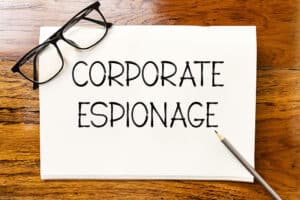A major concern of businesses, particularly businesses that use and depend on information, are concerned with theft of information assets such as technological discoveries, inventions, trade secrets, copyrights, strategic plans, planned mergers, acquisitions and many other forms of information critical to the viability of the business. These businesses usually operate in highly competitive industries where information loss can adversely affect their market positions.
Equipment used in the theft of information typically includes:
- Miniaturized cameras and microphones that can be hidden inside telephones, furniture, walls, ceilings and floors
- Parabolic microphones that can hear conversations from great distances
- Wireless devices that tap into telephone lines
- Devices that record and translate electronic emissions from computers
- Long-distance cameras and video recorders
A specialty in the private investigation industry is prevention and detection of the devices mentioned above. The specialty is often called technical security countermeasures. The first step in TSCM is a physical inspection of areas where sensitive information might be discussed. Such areas could be offices of senior management, conference and briefing rooms and rooms used for high-level discussions at out-of-office meetings.
One objective of the physical inspection is to “sneak up” on a covert listener. In other words, visually find detection devices without alerting the listener. This is done because certain eavesdropping devices will automatically shut down when the device senses an attempt at detection. In this phase, the inspection phase, the TSCM technician would look above lift-out ceiling tiles, look in and behind air conditioning vents, remove electrical wall plates, remove the mouthpieces of telephones, look at and behind wall pictures, look for small holes (drilled or punctured) in the walls, and hand-examine items that could conceal a listening device. Such items could be a name plate on a desk, photograph frames or a pen set.
The second phase is an electronic inspection. The technician uses three tools:
- A time-domain reflectometer. This tool examines telecommunications lines entering the protected area.
- The spectrum analyzer. This tool looks for signals generated by eavesdropping devices.
- The non-linear junction detector. This tool detects hidden recorders and remotely controlled transmitters.
Proprietary information can be the very lifeblood of a business. Investigators that specialize in preventing and detecting eavesdropping are a small but essential resource for information-dependent businesses.
Source:





